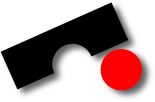Isolating Intrusions by Automatic Experiments
- NDSS 2006
by
Stephan Neuhaus, Andreas Zeller
Proceedings of the 13th Annual Network and Distributed System Security Symposium, Pages 71-80, Internet Society, Reston, VA, USA, February 2006.
ISBN: 1891562223
See also
More information is available at http://www.st.cs.uni-saarland.de/malfor/.
Abstract
When dealing with malware infections, one of the first tasks is to find the processes that were involved in the attack. We introduce Malfor, a system that isolates those processes automatically. In contrast to other methods that help analyze attacks, Malfor works by experiments: first, we record the interaction of the system under attack; after the intrusion has been detected, we replay the recorded events in slightly different configurations to see which processes were relevant for the intrusion. This approach has three advantages over deductive approaches: first, the processes that are thus found have been experimentally shown to be relevant for the attack; second, the amount of evidence that must then be analyzed to find the attack vector is greatly reduced; and third, Malfor itself cannot make wrong deductions. In a first experiment, Malfor was able to extract the three processes responsible for an attack from 32 candidates in about six minutes.
Keywords
- protection mechanisms
- security and protection
- intrusion analysis
BibTeX Entry
@inproceedings{neuhaus-ndss-2006,
title = "Isolating Intrusions by Automatic Experiments",
author = "Stephan Neuhaus and Andreas Zeller",
year = "2006",
month = feb,
address = "Reston, VA, USA",
booktitle = "Proceedings of the 13th Annual Network and Distributed System Security Symposium",
location = "San Diego, CA, USA",
pages = "71--80",
publisher = "Internet Society",
ISBN = "1891562223",
}



